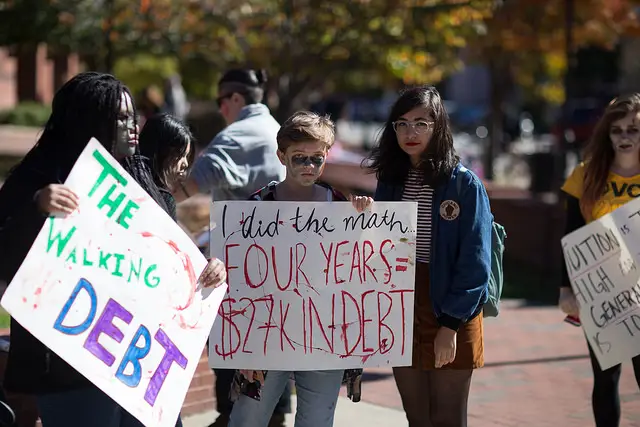For the majority of college-educated adults, the rising cost of higher education is one of the most pressing issues in the 2020 presidential elections, a GiveCampus survey has found.
The educational fundraising platform surveyed 1,000 college-educated adults for its 2019 Economics of Education Report to find out about their perceptions of giving back to schools, their donation habits, and their opinions on the issue of education affordability.
Nearly 82 percent of those surveyed, mostly members of generation Z, millennials and generation X, reported concerns regarding affordability in higher education. 74 percent of baby boomers also viewed the rising cost of education as one of the most important issues
According to the Trends in Student Aid and Trends in College Pricing report released by the College Board, at public four-year colleges and universities for full-time out-of-state students, tuition and fees rose from $25,670 in 2017-18 to $26,290 in 2018-19. For in-state students, these costs rose from $9,980 in 2017-18 to $10,230 in 2018-19.
Tuition and fees at private nonprofit four-year institutions rose from $34,700 in 2017-18 to $35,830 in 2018-19. Public two-year colleges were also slightly affected by tuition hikes. These colleges saw an average increase of $100 from $3,560 in 2017-18 to $3,660 in 2018-19.
On top of these rising fees, rising student debt is crippling many recent graduates who have simultaneously witnessed stagnant average salaries over the last few years.
However, this is no deterrent for many students with student debt in relation to philanthropy. The GiveCampus survey found that these students were three times more likely than those without debt to have donated to their alma mater. In the last 12 months, 34 percent of alumni with student debt donated to their alma mater, compared to 12 percent who graduated without taking out any student loans.
Out of the total surveyed adults, nearly 65 percent donated to a nonprofit organization, in comparison to 22 percent who donated to their alma mater. Those who received a scholarship were also three times more likely to have donated to their school.
White, Male Presidential Candidates Rank as Student Favorites [Poll]

